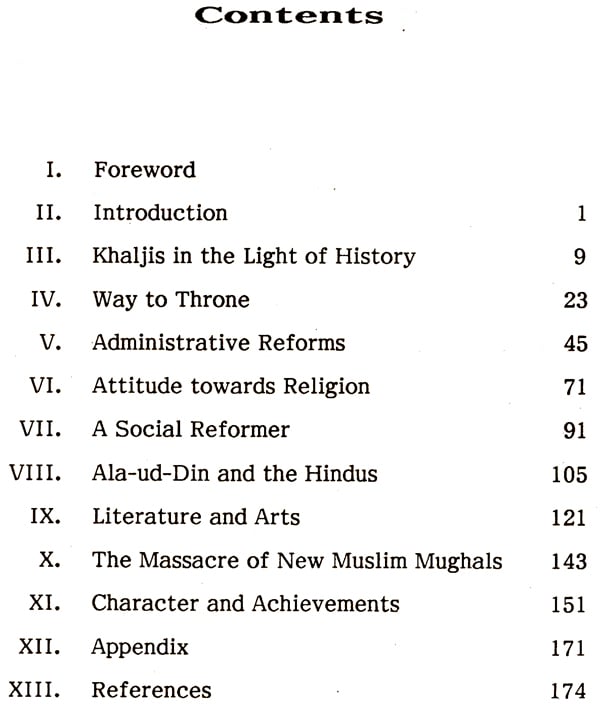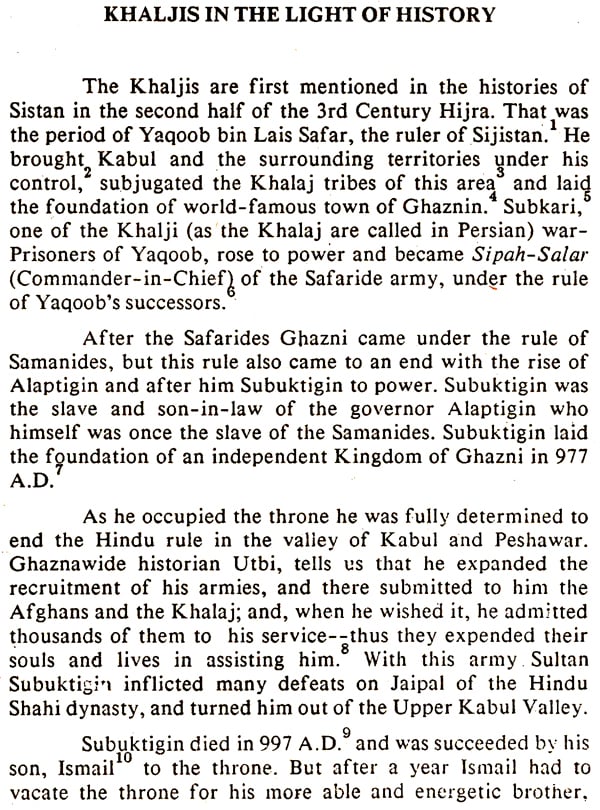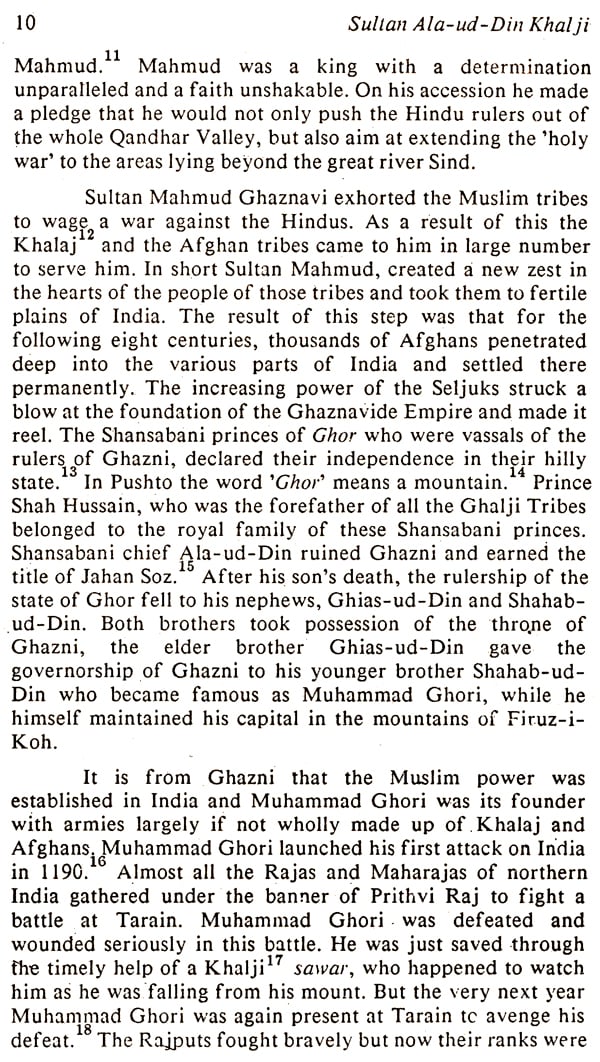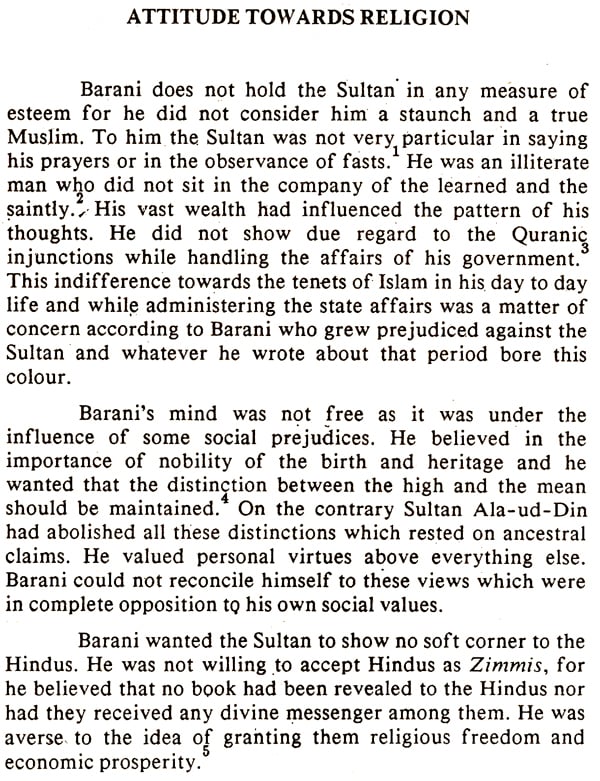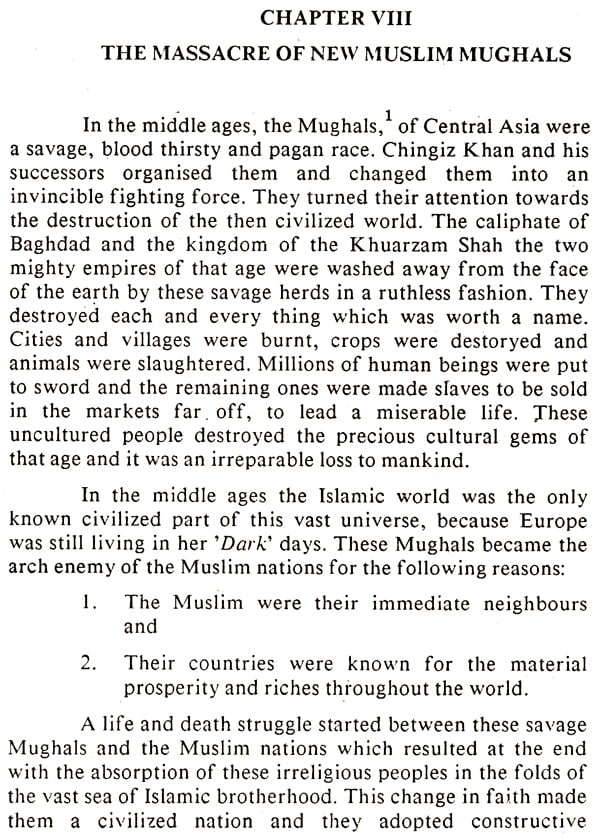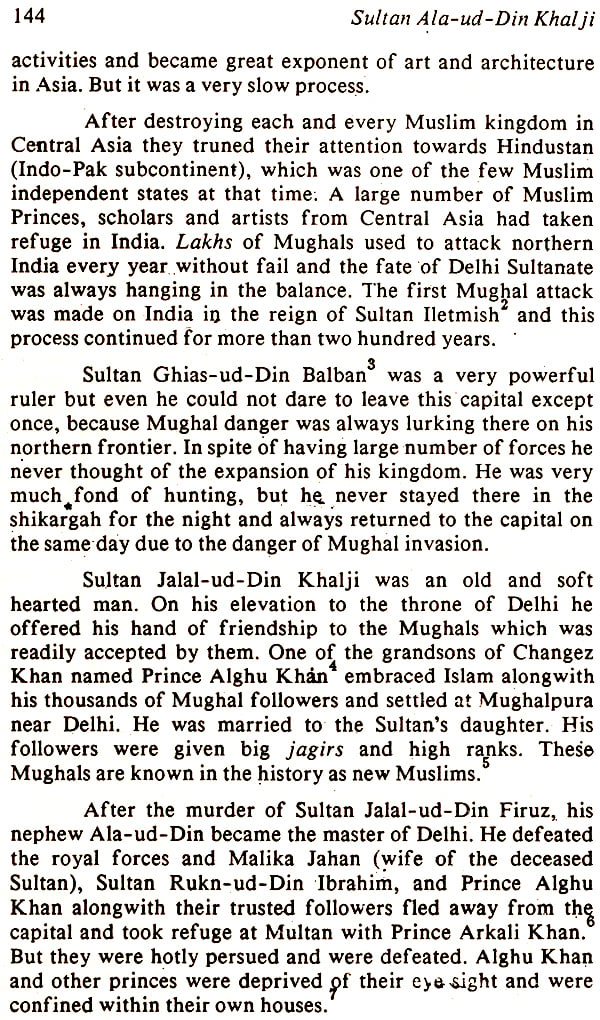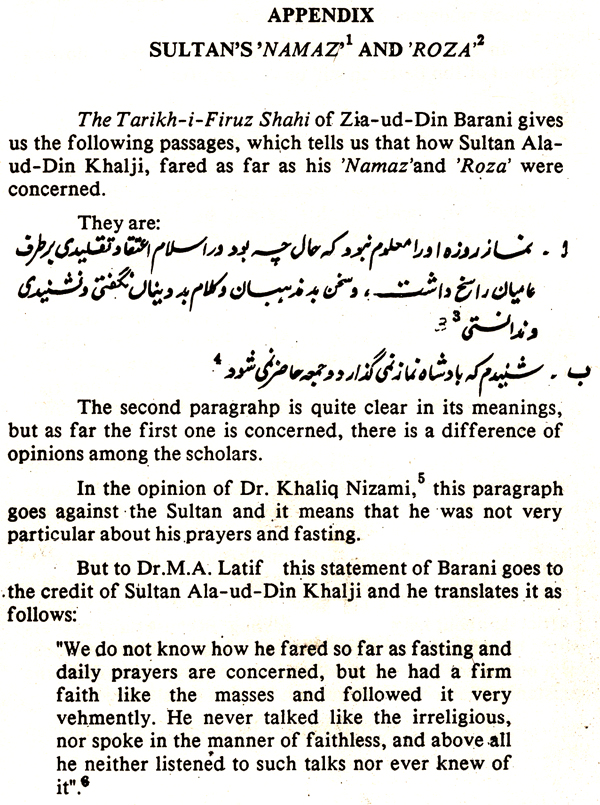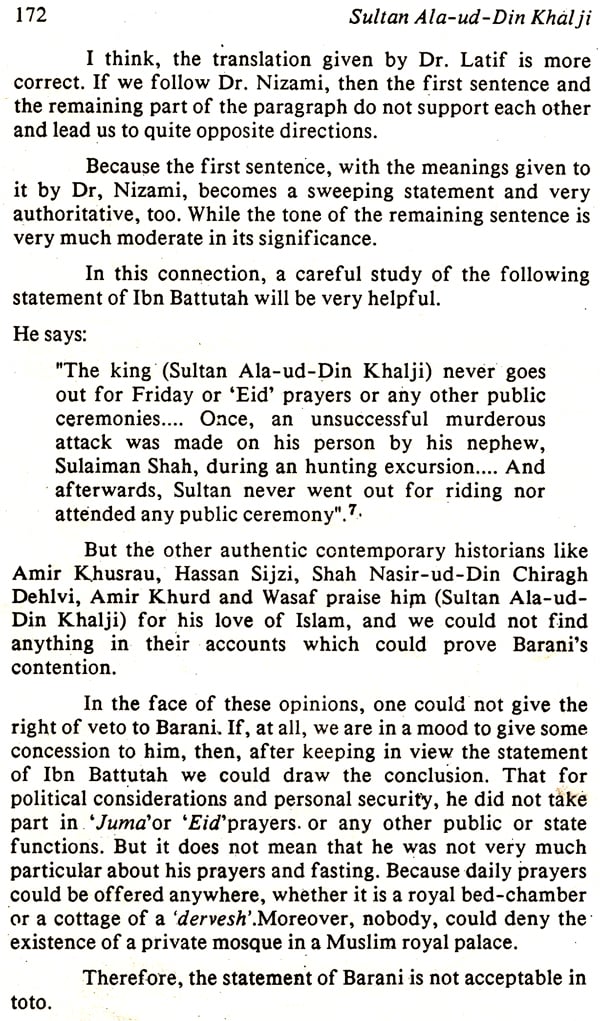
The Life and Works of Sultan Alauddin Khalji
Book Specification
| Item Code: | NAR874 |
| Author: | Dr. Ghulam Sarwar Khan Niazi |
| Publisher: | Atlantic Publishers and Distributors Pvt. Ltd. |
| Language: | English |
| Edition: | 2018 |
| ISBN: | 9788171563623 |
| Pages: | 214 |
| Cover: | HARDCOVER |
| Other Details | 9.00 X 6.00 inch |
| Weight | 360 gm |
Book Description
The pre-Moghul Muslim presence in the sub-continent is very important from many angles. In this phase the basic structure of an efficient administration evolved and from this point of view Alauddin Khilji holds a cardinal importance. His administration resulted in the prosperity of his subjects and kept his treasury filled. Literature and learning, art and architecture and public morality reached a new peak.
It is a deplorable irony of time that we do not possess an accurate and detailed historical record of the achievements of such a great ruler. Sultan Ala-ud-Din has not been dealt fairly by the historians for one reason or the other. It was necessary to present this great Sultan in his true colours. Dr. Ghulam Sarwar Khan Niazi, the author of this book has carefully examined the accounts of all known contemporary and early writers and has drawn a picture of the Sultan, based on true and accepted facts provided by contemporary historians, which is, to say the least, different. The freshness of the point of view emerges from a genuine erudition and scholarly perception of the subject.
Sultan Ala-ud-Din Khal ji was one of the greatest kings of his times. He held vast territories and commanded a formidable army. His administration resulted in the prosperity of his subjects and kept his treasury filled. Literature and learning, art and architecture and public morality reached a new peak.
But it is a deplorable irony of time that we do not possess an accurate and detailed historical record of the achievements of such a great ruler. If at all, we find anything relating to him in some of the books, unfortunately that is not relevant to the facts. Where facts had been taken into consideration, the description is so brief that a student of history remains insatiated.
Some of the modern scholars have tried to delve into the historical records, but a majority of them failed to achieve a result for following reasons:
a). The lack of sound knowledge of the Persian language, though there are some definite exceptions.
b). Indifferent understanding of the spirit of the age.
c). Racial and religious differences.
d). Personal likes and dislikes.
Sultan Ala-ud-Din has not been dealt fairly by the historians for one reason or the other. It appears that he is the victim of most relentless injustice that could be done to a historical personage of his eminence. I consider him a victim of injustice because whatever he did, though it was of capital good to his country and his subjects, was assigned selfish motives. Therefore it was very necessary to present this great Sultan in his true colours. I have carefully examined the accounts of all known contemporary and early writers and have drawn a picture of the Sultan, based on true and accepted facts, which are quite different from those drawn by other i scholars. And the readers of Ishwari Parasad's Medieval India and Sir W. Haig's Cambridge History of India, will not be able to recognise the man and the Sultan as presented in this book, because:
a). Sultan Ala-ud-Din Khal ji was not quite an illiterate man and was a great patron of the men of letters.
b). He had a great respect and love for the religion of his forefathers.
c). His rule was a blessing for the Hindu masses and classes.
d). He introduced his famous Price Control System only to eliminate the sufferings of his subjects.
e). He was a great social reformer and tried his best to remove all the social evils of the society.
f). He was not a head-strong dictator but prone to listen to the advice of his advisors.
g). He was severe but not cruel. He used a strong hand against the law-breakers, but to the loyal and law-abiding subjects he was very kind.
h). He was a man of refined tastes. Literature, music and architecture touched the highest scale under his benign patronage.
i). He was very just and very generous.
j). He had a great respect for the 'Aulia' (Saints) and 'Ulema' of his days.
k). His character was exemplary. He never kept his person above the law of the State.
**Contents and Sample Pages**
